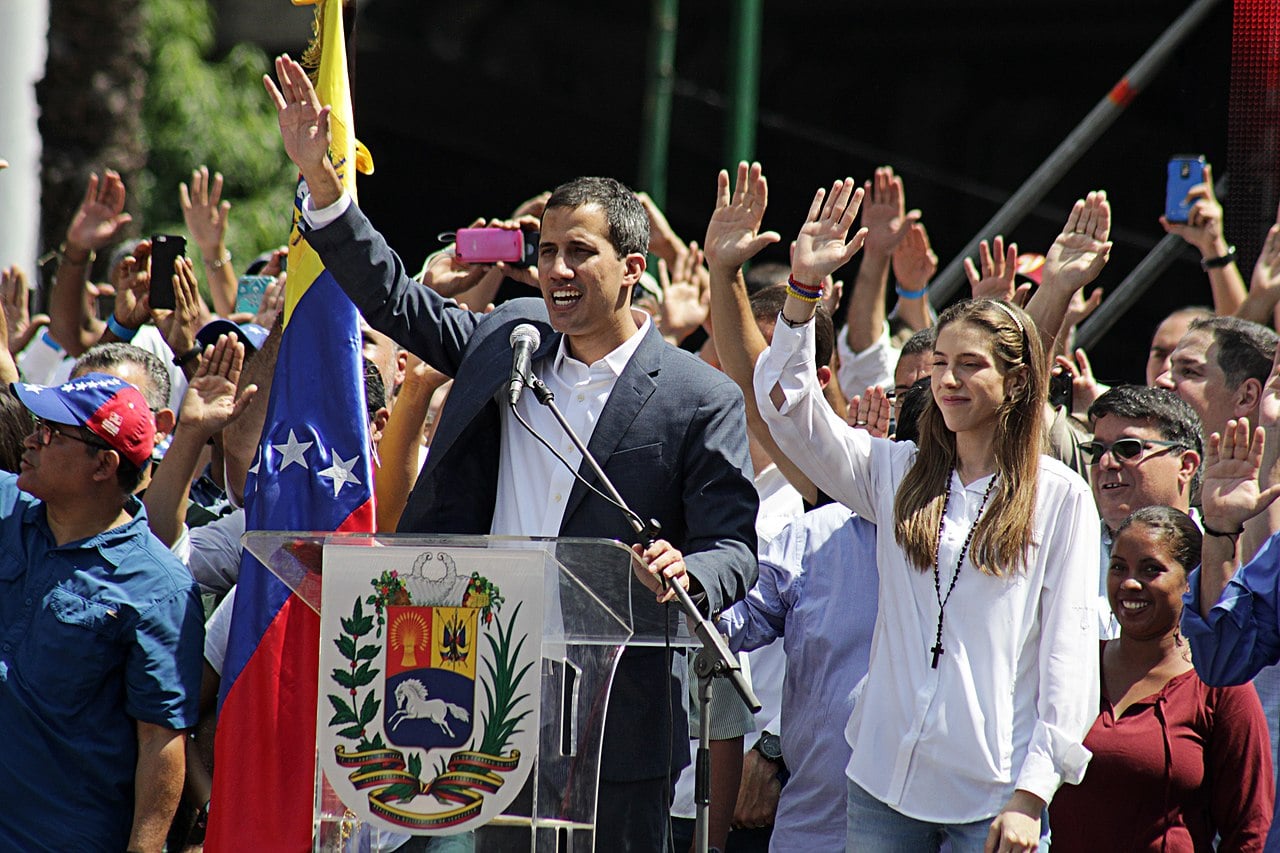Venezuela is in the midst of a political crisis influenced not only by internal turmoil but also by international players. Juan Guaido, the current head of the National Assembly who has declared himself the interim President of the country, has vowed to launch a series of protests across the country to force Nicolas Maduro out of power. But Guaido admitted that he lacked sufficient military support. The military leaders and several government ministers remain loyal to the corrupt President Nicolas Maduro.
Juan Guaido’s Operation Liberty is in its ‘final phase’
Massive protests across the country on Tuesday and Wednesday failed to resolve the political stalemate, even though Guaido enjoys popular support. Juan Guaido said he couldn’t gather enough military defectors to topple the government of Nicolas Maduro.
Guaido has launched the “final phase” of “Operation Liberty” to oust Maduro. He is hopeful that the popular protests and demonstrations would convince top military leaders to switch sides. “We have to insist that all the armed forces protest together,” Guaido told CNN.
Juan Guaido has also called on state employees to join the movement on Thursday. It will be a major victory for the popular leader if state employees come to the streets in his support. In Venezuela, public sector employees have been warned for years that they would lose their jobs if they did not join the government rallies. They fear they would definitely lose their jobs if they go on strike against the government.
Nicolas Maduro has blamed the United States for Tuesday’s “coup attempt” led by Juan Guaido. He has sought “utmost loyalty” from his supporters. Maduro has asked the elected officials to unite for democracy and the people of Venezuela. He also dismissed speculations that he was ready to flee the country.
The protests have turned increasingly violent. According to the Venezuelan Observatory of Social Conflict, more than a hundred people suffered serious injuries during this week’s demonstrations. Dozens of people were injured and a woman died on Wednesday when protesters clashed with security forces. The Human Rights Watch reported that security forces were firing shotgun pellets at protesters and journalists.
The US is ready to take ‘limited’ military action to resolve Venezuela crisis
The United States is more than just a mute spectator in the Venezuela crisis. The Trump administration has called on Russia to stop supporting Nicolas Maduro. Russia, China, Bolivia, and Cuba are among only a handful of countries supporting Maduro. Russia told the US that it was violating international laws by meddling in Venezuela. Moscow urged the Trump administration not to take irrational actions in the Venezuela crisis.
#OperacionLibertad is underway in #Venezuela & the world is watching. @jguaido’s safety must be guaranteed. The Venezuelan people are demanding change, a peaceful democratic transition, & return to prosperity. It’s time for the illegitimate regime to step aside. #EstamosUnidosVE pic.twitter.com/S1GQGakSul
— Secretary Pompeo (@SecPompeo) April 30, 2019
However, Washington’s patience appears to be wearing out. Donald Trump said Thursday it was “probably going to be very bad.” He said in an interview with Fox Business, “It’s a terrible thing. People are starving, people are dying. There’s no food, there’s no water.” Trump has also pulled up Cuba for supporting Maduro, threatening to impose new sanctions on Cuba.
What we are seeing today in #Venezuela is the will of the people to peacefully change the course of their country from one of despair to one of freedom and democracy. The U.S. stands with them and @jguaido now and always. #EstamosUnidosVE
— Secretary Pompeo (@SecPompeo) April 30, 2019
The US could take military action to resolve the Venezuela crisis and oust Nicolas Maduro from power. Secretary of State Mike Pompeo said if military action is what is needed, “that’s what the United States will do.” Pentagon has already done all the planning and preparations.
Nicolas Maduro is losing the support of the public and the international community, but he is reluctant to give up. However, sources familiar with the matter told the New York Times that the US was “keenly interested in dislodging the Venezuelan leader.” Washington wouldn’t hesitate to take “limited” military action to oust Maduro. Political experts believe it could take several weeks or months before the Maduro government crumbles.
Why is Venezuela in turmoil?
If you don’t fully understand what is going on in Venezuela, allow me to explain. For the last 20 years, Venezuela has been ruled by Hugo Chavez and Nicolas Maduro, both belonging to the socialist PSUV party. The hardline socialist policies of Chavez and Maduro have caused a humanitarian crisis in the country. The PSUV controls all the key institutions in the country, including the judiciary. The country’s economy collapsed and unemployment and hunger became widespread under their rule.
Maduro was re-elected as the country’s President in May 2018. He claims he was democratically elected, but the international community says the election was nothing more than a sham. The Lima group – which counts 15 nations as its members – said the election was not “democratic, free, fair, and transparent.”
When the opposition parties gained a majority in the National Assembly, Nicolas Maduro created a new National Assembly consisting exclusively of his supporters. The new National Assembly superseded the legitimate one. Amid all this, the head of the legit National Assembly Juan Guaido declared himself interim President in January this year.
Guaido described Maduro as a “usurper,” which means the post of the President is vacant. In such a scenario, the constitution calls for the chief of the National Assembly to become the interim leader.
Guaido has vowed to oust Maduro, setup a transitional government, and hold free and fair elections in the country. So far, more than 50 countries in the world – including the US, UK, and most nations in Latin America – have recognized Guaido as the legitimate leader of Venezuela. If the stalemate continues, the US could take military action to oust Maduro.




